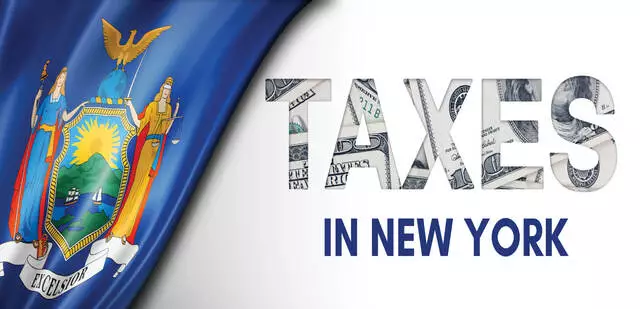
There are five cases to summarize this week. Most address issues you’ve seen before. But, Matter of Vance touches on New York’s temporary de-coupling from the CARES Act and other post-March 1, 2020, Internal Revenue Code Amendments. I expect we’re going to see many cases in the future that discuss de-coupling issues since they are numerous, complex, and may produce anomalous results.
Next week we have a taxpayer victory on a sales tax issue to report. We know about it now because it was one of our cases. But, unfortunately, TiNY’s 13 or so loyal readers will need to wait until the next edition of TiNY.
Decision:
Matter of Chae (May 30, 2024); Div’s Rep. Maria Matos, Esq.; Pet’s Rep. pro se; Article 22/Default determination (Chris Doyle).
The Tribunal affirmed the default determination issued by a Small Claims Presiding Officer and then sustained by the Supervising Administrative Law Judge.
Here’s part of Petitioner’s argument that she should get another bite at her day-in-court apple: “Petitioner explained that she intended to go to the hearing but failed to read the mailed letter providing notice of the hearing due to her busy online course workload during which she was away from her residence at a coworking office.” This new-age excuse makes me long for the good ol’ “the dog ate my notice of hearing” days. I am surprised she didn’t miss the letter altogether because she was so busy “practicing gratitude [and] manifesting abundance” (nod to a recent insurance company TV ad). The Tribunal found that Petitioner didn’t show either an excuse for defaulting in appearance or a meritorious case. And since Petitioner needed to show both to prevail, the Tribunal affirmed the SALJ’s order denying the motion to vacate the default determination.
Determinations:
Matter of Arigo (Supervising ALJ Gardiner, May 30, 2024); Div’s Rep. Mark O’Higgins, Esq.; Petitioner pro se; Article 22/Jurisdiction of DTA (Zoe Peppas).
Petitioner filed a petition with the Division of Tax Appeals on November 28, 2022, challenging a notice of disallowance. On the petition, Petitioner indicated he had requested a conciliation conference. However, Petitioner failed to attach any conciliation order to the petition. Even worse, the petition was signed by a Craig Cheser, who was not a lawyer or CPA qualified to represent Petitioner at DTA.
The Division of Tax Appeals responded back to Petitioner requesting a copy of the conciliation order and with instructions for Cheser to request special permission to appear before DTA. Petitioner did not respond or otherwise comply to that request.
The Division of Tax Appeals issued a notice of intent to dismiss the petition, and thereafter dismissed the petition with prejudice.
Matter of Divine (ALJ Baldwin, May 30, 2024); Div’s Reps. James Passineau, Esq. and Jennifer Hink-Brennan, Esq.; Pet’s Rep. pro se; Article 22/Dependent exemption (Pete Calleri).
The issues in this case were as follows: (1) whether the Division properly denied Petitioner’s claimed dependent exemption for tax year 2020; (2) whether the Division properly denied Petitioner’s claimed Empire State child credit for tax year 2020; (3) whether Petitioner showed reasonable cause for abatement of penalties; and (4) whether a frivolous penalty should have been imposed under Tax Law § 2018 and 20 NYCRR 3000.21.
Petitioner filed his 2020 resident income tax return on May 25, 2021, claiming one dependent exemption for a minor child and an Empire State child credit. Petitioner reported an additional tax due of $265 but did not submit any payment with his return or include information for electronic funds withdrawal. The Division’s records indicated that the same child was previously claimed as a dependent for another individual for tax year 2020.
The Division sent Petitioner a request for information to support that the child was a dependent, and Petitioner responded with a personal statement, a copy of the child’s social security card, and an application for a copy of the child’s birth certificate. The Division determined Petitioner’s response was insufficient and issued a statement of proposed audit change denying the claimed dependent and Empire State child credit and imposing penalties for late filing. The Petitioner filed a request for conciliation conference with BCMS in protest of the statement but was informed that the statement did not offer formal protest rights. The Division issued a notice of deficiency asserting tax due, penalties, and interest. Petitioner filed a petition with DTA protesting the notice.
Ultimately, the ALJ denied Petitioner’s petition, sustained the notice of deficiency, and imposed the maximum penalty of $500 for filing a frivolous petition. The ALJ determined that neither the child’s social security card nor the application for a copy of the birth certificate established Petitioner’s relationship to the child or the child’s age. Additionally, Petitioner’s personal statement as to his living arrangements with the child came with no verifiable documentation to substantiate where the child resided. Therefore, the ALJ determined Petitioner had failed to meet his burden of proof under Tax Law § 689(e) to support his claim that he had a qualifying child to claim as a dependent. As such, it was appropriate to deny both the claimed dependent exemption and Empire State child credit.
Furthermore, because Petitioner neither provided an explanation as to why his return was not timely filed nor remitted payment of the tax determined to be due, Petitioner failed to present evidence that would constitute reasonable cause for abatement of penalties under Tax Law § 685(a)(1) and (2). Additionally, after motion by the Division, the ALJ imposed a frivolous petition penalty of $500. Petitioner argued that he submitted a “form of tender” to satisfy his tax liability, but instead submitted a federal form 1099-C for cancellation of debt purportedly discharging the debt he owed. The ALJ called Petitioner’s actions “not serious” and “lacking a legal basis or legal merit” (Matter of Michael A. Goldstein A No. 1 Trust, Tax Appeals Tribunal, October 11, 2011, aff’d on other grounds 101 AD3d 1496 (3d Dept 2012), lv denied 21 NY3d 860 (2013)). As such, the ALJ denied the petition.
Matter of Haich (Supervising ALJ Gardiner, May 30, 2024); Div’s Rep. Emil Kambala; Pet’s Rep. pro se; Article 22/Jurisdiction of DTA (Zoe Peppas).
Petitioners filed a petition for redetermination or for refund of New York State personal income tax for the year 2018 on November 29, 2022. Included in their petition was a letter stating a Notice of Disallowance had been mailed by the Division to Petitioners. No such Notice was attached to the petition.
The Division requested that Petitioners provide a copy of the statutory notice (here, the Notice of Disallowance) in protest. Petitioners did not provide any such notice. The Division issued a notice of intent to dismiss petition, and because it was not in proper form due to the absence of the statutory notice, the petition was dismissed with prejudice.
Matter Vance (ALJ Behuniak, May 30, 2024); Div’s Rep. Amy Seidenstock, Esq.; Pet’s Rep. pro se; Article 22/Taxability of unemployment compensation (Pete Calleri).
Petitioner filed her 2020 resident income tax return and requested a refund of $2,023. The refund included an Empire State child credit, a New York State earned income credit, a New York City school tax credit, a New York City earned income credit, and a college tuition credit. After the Division issued Petitioner her refund, it received information from the New York State Department of Labor that Petitioner had received unemployment compensation in the amount of $19,608, none of which was reported on Petitioner’s return.
The Division issued Petitioner a statement of proposed audit change recomputing Petitioner’s 2020 tax liability. It resulted in additional New York State and New York City tax due, and the reduction or elimination of the tax credits previously taken by Petitioner. It was further calculated that Petitioner had received an overpayment of her 2020 refund, and the Division issued a notice of deficiency. Petitioner filed a petition protesting the amount reported by the Department of Labor as paid to her and that such amount is taxable under the Tax Law.
The ALJ denied Petitioner’s petition and sustained the notice of deficiency against her. The ALJ reasoned that the Division received information regarding Petitioner’s unemployment compensation directly from the Department of Labor. Therefore, there was no question that she received the unemployment compensation and that she failed to include it on her return. Regarding its taxability, Tax Law § 612(a) states that “[t]he New York adjusted gross income of a resident individual means his federal adjusted gross income as defined in the laws of the United States for the taxable years.” IRC § 85(a) provides that “[i]n the case of an individual, gross income includes unemployment compensation,” while IRC § 85(b) further states that unemployment compensation includes amounts received from a state. Therefore, the unemployment compensation received by Petitioner was properly included as income.
Even the American Rescue Plan Act of 2021 (i.e., Public Law 117-2 (March 11, 2021)) did not help Petitioner’s case. It amended the IRC by providing relief to individuals who received unemployment compensation in 2020 by excluding up to $10,200 of such compensation from federal gross income if the individual’s adjusted gross income was less than $150,000. However, Tax Law § 607(a) limits the applicability of IRC amendments to before March 1, 2020. Accordingly, because the relevant limitations of the American Rescue Plan Act of 2021 were implemented via IRC amendment on March 11, 2021, which falls after March 1, 2020, the amendment does not impact Petitioner’s tax calculation.
Because Petitioner offered no evidence that her 2020 unemployment compensation was a lesser amount, she did not meet her burden of establishing that the notice was incorrect under Tax Law § 689(e) and 20 NYCRR 3000.15(d)(5).



